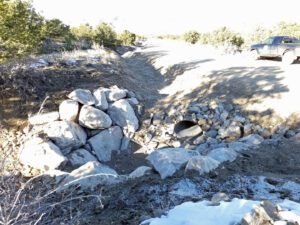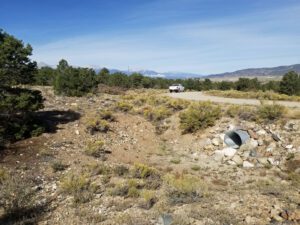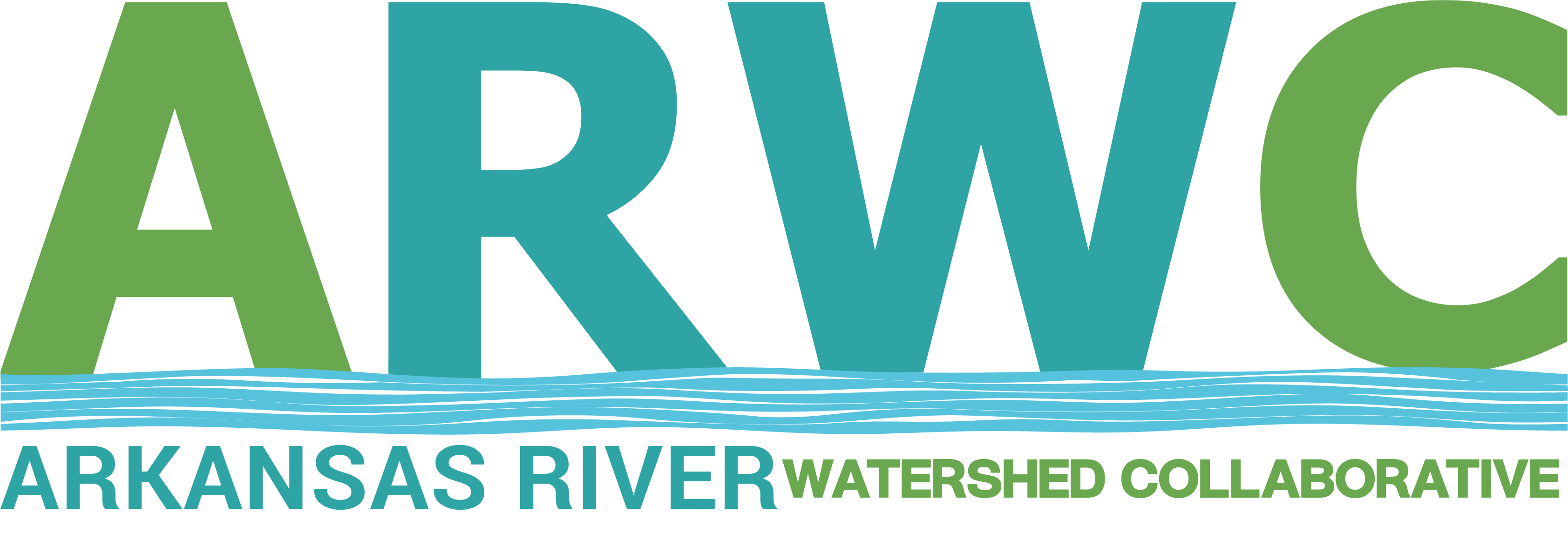In 2019, the Decker Fire scorched nearly 9,000 acres of land near Salida, Colorado, leaving behind not only a charred landscape but also significant risks to water quality and community safety. The Arkansas River Watershed Collaborative, alongside various partners, stepped in to address these challenges and restore the resilience of the land and local communities.
The Challenge
The Decker Fire’s high and moderate burn severity affected small, high-gradient streams that flow into the Arkansas River. The aftermath of the fire created conditions similar to previous fires, like the Hayden Pass Fire, which led to catastrophic post-fire flooding. These floodwaters threatened homes, infrastructure, and the water quality of the Arkansas River. Recognizing the potential for environmental damage, ARWC quickly mobilized to implement solutions that would mitigate these risks and protect the region’s vital water resources.
Accomplishments
Through a combination of on-the-ground efforts and innovative technologies, ARWC successfully implemented several key projects:
- Stormwater Management Improvements
In Loggie Gulch, ARWC restored and upgraded a stormwater drainage system to better handle post-fire flows. The system now includes reinforced drop structures and sediment deposition areas, which will help prevent future flooding and sediment buildup. This work complements ongoing Emergency Watershed Protection (EWP) efforts and ensures that local infrastructure is better protected against severe weather events. - Stock Pond Stabilization
In Silverheels Gulch, ARWC addressed the risk of a stock pond breaching due to sediment buildup from post-fire runoff. By reinforcing the pond’s dam and creating a new overflow system, ARWC prevented potential downstream damage that could have occurred if the pond had failed. - Water Quality Monitoring
To safeguard the drinking water supplies of communities downstream from the burn area, ARWC partnered with River Science, Canon City Water, and Colorado Springs Utilities to install turbidity sensors. These sensors provide real-time data on water quality, giving water providers early warnings of sediment runoff that could impact their systems. This proactive approach ensures that critical infrastructure remains protected from post-fire water quality issues.
Community Impact
These efforts have had a profound impact on the community. By reducing the risk of flooding and erosion, ARWC has not only protected homes and infrastructure but also contributed to the long-term health of the Arkansas River. The restoration work has helped stabilize the landscape, ensuring that the area can recover more quickly and effectively from the fire’s devastation.
The success of the Decker Fire recovery efforts is a testament to what can be achieved when communities come together to protect their natural resources and build a more resilient future.

Loggie Gulch culvert after mitigation work

Loggie Gulch culvert before mitigation work
